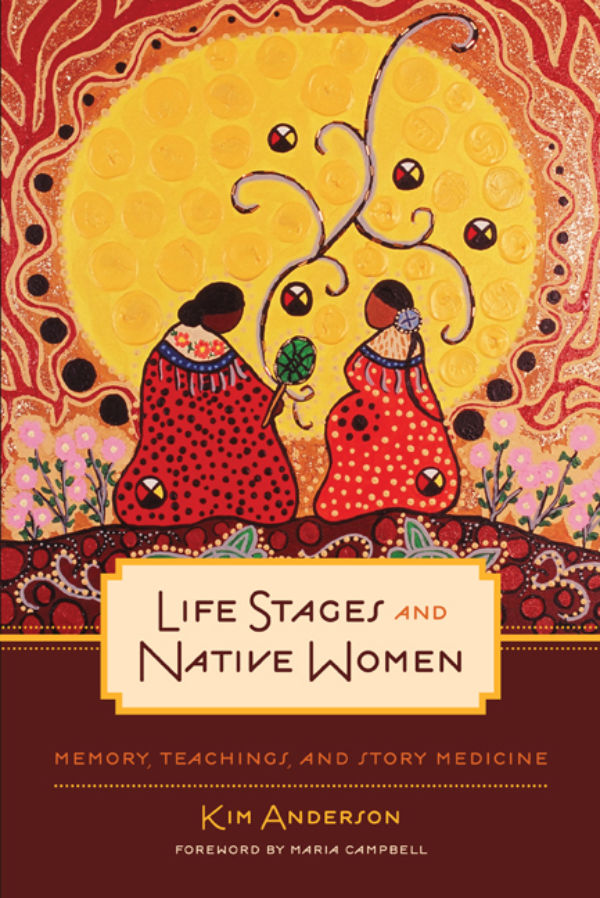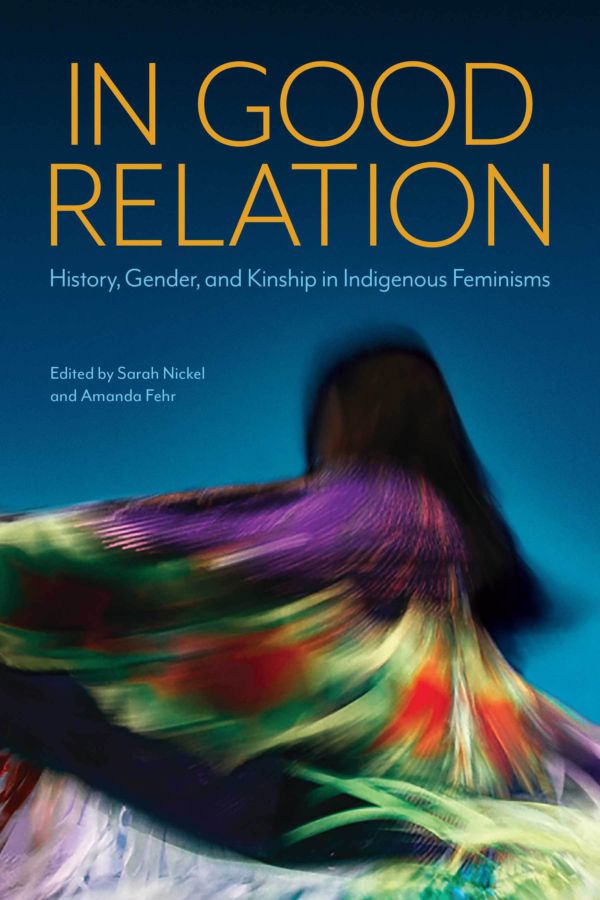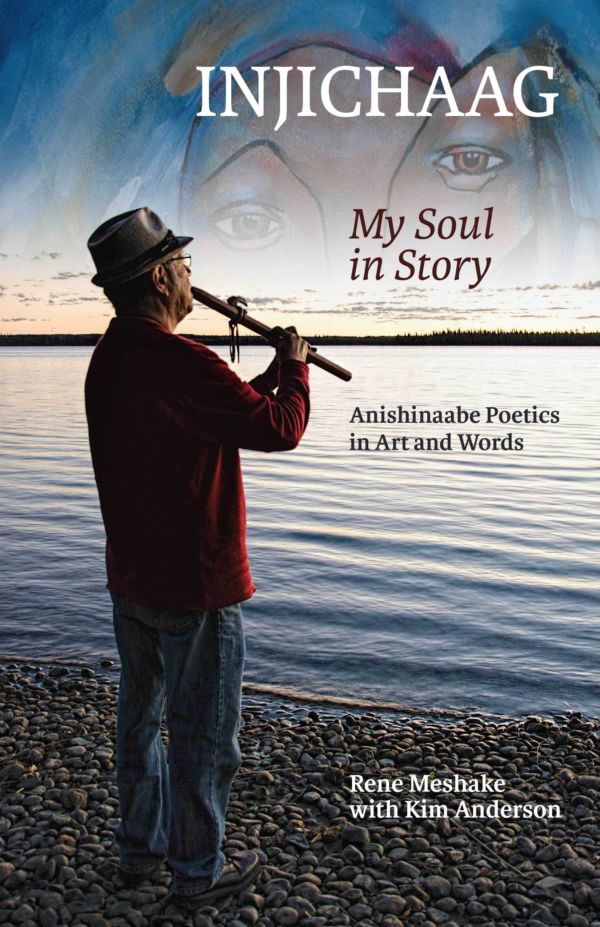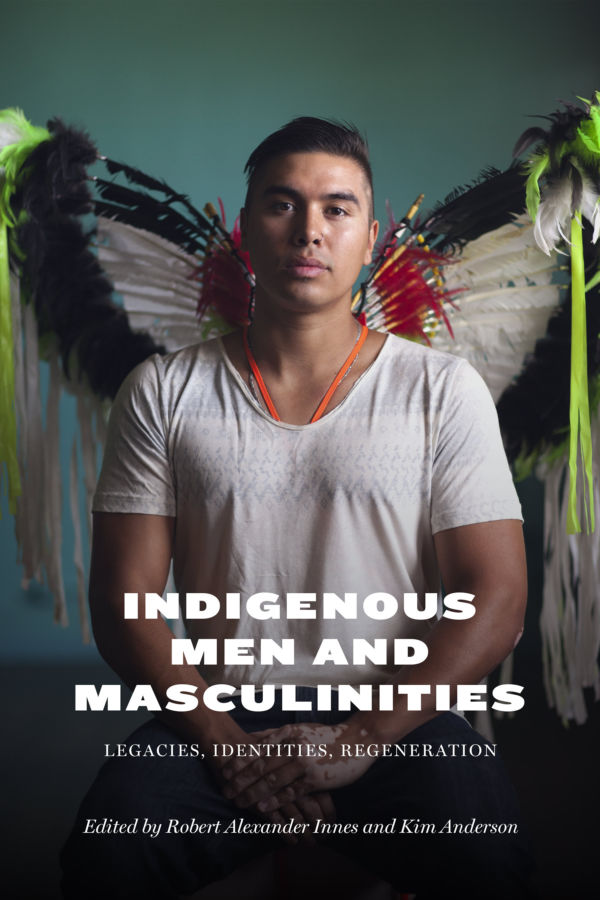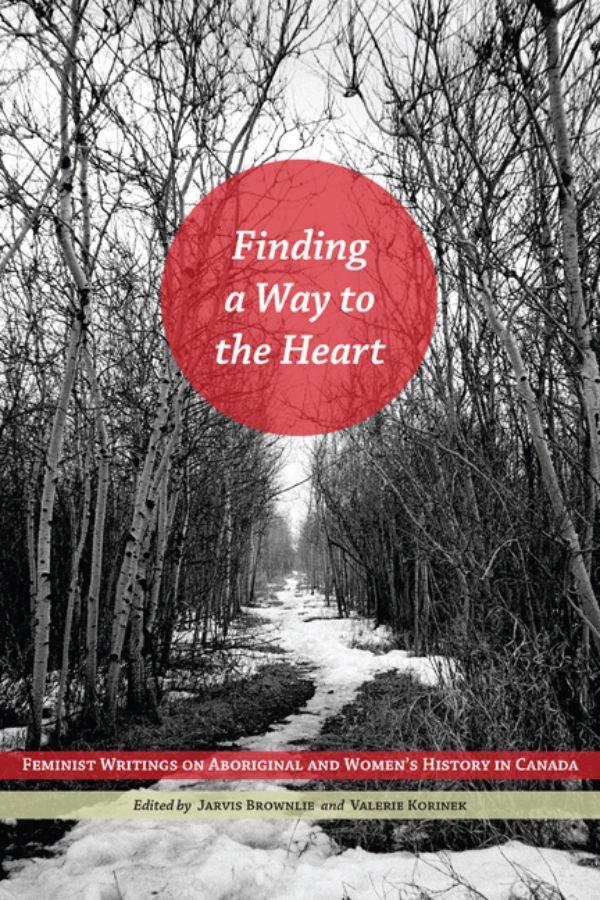Life Stages and Native Women
Memory, Teachings, and Story Medicine
Overview
A rare and inspiring guide to the health and well-being of Aboriginal women and their communities. The process of “digging up medicines” - of rediscovering the stories of the past - serves as a powerful healing force in the decolonization and recovery of Aboriginal communities. In Life Stages and Native Women, Kim Anderson shares the teachings of fourteen elders from the Canadian prairies and Ontario to illustrate how different life stages were experienced by Metis, Cree, and Anishinaabe girls and women during the mid-twentieth century. These elders relate stories about their own lives, the experiences of girls and women of their childhood communities, and customs related to pregnancy, birth, post-natal care, infant and child care, puberty rites, gender and age-specific work roles, the distinct roles of post-menopausal women, and women’s roles in managing death. Through these teachings, we learn how evolving responsibilities from infancy to adulthood shaped women’s identities and place within Indigenous society, and were integral to the health and well-being of their communities. By understanding how healthy communities were created in the past, Anderson explains how this traditional knowledge can be applied toward rebuilding healthy Indigenous communities today.
Reviews
“Kim Anderson’s book, Life Stages and Native Women, is one I wish my Native mother could have read before she died. It is about the importance of women’s roles in Native culture but on a larger scale it is about the importance of the Feminine in holding communities together and the ‘medicines’ in stories that remind us of our strength.”
Melinda Burns, September issue of Off the Shelf (Guelph’s The Bookshelf)
“Anderson has achieved what she set out to do – introduce some cultural knowledge about the roles of women and the idea that some customs can be revived to everyone’s benefit. Life Stages and Native Women does not try to take the place of an elder’s teachings, but rather leads you in the right direction if you want to know more. If you’re interested in a more relaxed and modern look at aboriginal women than you’d find in an introduction to native studies class, you will enjoy this.”
Colleen Simard, Winnipeg Free Press
When applying her work to health and wellness, Anderson shows that she is particularly invested in the community-based applications of her research in a way that is practical and meaningful and strengthens the roles of women in the community. She writes, “I wonder how different our communities might look if we honored all young girls for their sacredness and their potential, and if we granted the wise ‘old ladies’ the role they once had in governing their families and communities (173)." The book concludes with the powerful message that these stories can reconnect generations and provide the basis for the recreation of ceremony, societal roles, and life stages that can help to heal from colonization and create healthier communities by imagining a stronger way of life that connects the past to the present.
Cutcha Risling Baldy, University of California, Davis, American Indian Culture and Research Journal 37:1 (2013)
"Anderson’s study offers new insights and a tremendously positive approach to understanding the forces at play in ensuring health for native communities in Canada. In her quest to imagine a stronger way of life, she gently achieves a careful, nuanced view of the role of the community in health, well-being, and healing. She successfully achieves her goal of offering knowledge regarding opportunities for decolonization among the people she addresses, as well as her goal for personal growth in her belonging to her home community. While gender is not the focal point of her analysis, she highlights the roles of women in promoting health within communities, again offering opportunities for returning to traditional knowledge and healing practice. Anderson’s work is a welcome addition to the literature on native women’s health, nonnative understandings of the impact of colonization, the drive for decolonization, and oral histories."
Sally E. Mennill, University of British Columbia, H-Net Canada
“The elders that share stories in this book continue to give us a sense of place, a sense of safety, courage, and vision. Their stories make us laugh and teach us to be better people, families, and communities.... This book has been constructed from multiple layers of stories in that spirit of rebuilding, and *I am proud to be a part of it*.”
Maria Cambell, Life Stages of Native Women - Foreword
"A welcome contribution to the literature on decolonization and indigenous women’s health. Both an exploration of her personal experience as a native woman and an academic discussion of the multifaceted roles of women in northern Algonquian cultures, Anderson’s work complements the existing body of Canadian work on aboriginal Canadian women’s health. Moreover, her use of oral histories and her work with elders expands the existing literature on indigenous methodologies."
Sally E. Mennill, H-Net Online
"Life Stages is an accessible text and can serve as a practical empowerment manual for the hearts, minds and lives of Metis, Cree, Ojibway and Saulteaux women and communities. There are lessons to be learned from these stories, from their anecdotes and from their teachings that relate to feminist, inter-generational and inter-gender respect in all anti-patriarchal efforts and movements. This is highly recommended reading."
Deanna Radford, Herizons Magazine
"Drawn from materials of the oral histories of the Metis, Cree, Anishaabek, or Ojibway and Saulteaux elders, Life Stages and Native Women is presented as the result of digging up medicines, or the teachings. Although the history is indeed clouded with pain and oppression, the message for today is one of hope and rebuilding, along the with empowerment of native people, particularly women, to rebuild the circle of indigenous communities of greater Turtle Island."
Midwest Book Review
"This is a project in empowering women, girls and therefore, the entire community. It is about finding the forward path and 're-membering' the ways of the past in order to intentionally heal with story medicine, purposeful, spiritual and empowering. It is an act of decolonization and a manual for Native women’s activism."
JoLee Blackbear, Alter Native: An International Journal of Indigenous Peoples
"Life Stages pulls the reader into engaging with diverse Indigenous worldviews that explore women's roles, responsibilities, and purpose outside of a Western patriarchal framework."
Rebeka Tabobondung, Great Plains Quarterly
"Anderson puts oral history at the centre of her analysis, illuminating how Indigenous identities were informed by gender and life-stage, and how the women's fulfillment of these roles was necessary to the healthy functioning of their societies. Her intention is decolonization; she shares 'story medicines' of traditional (i.e. land-based) practices in order to recover knowledge of Indigenous women's lifeways and inspire current and future generations."
Nancy Van Styvendale, Canadian Literature
About the Authors
Table of Contents
Foreword by Maria Campbell / Introduction: Digging up the Medicines / Ch 1: Weaving Stories / Ch 2: People and Places / Ch 3: The Life Cycle Begins: From Conception to Walking / Ch 4: The “Good Life” and the “Fast Life”: Childhood and Youth / Ch 5: Adult Years: The Women’s Circle / Ch 6: Grandmothers and Elders / Ch 7: Bundling the Layers: Building on the Strengths of the Past to Take Us into the Future / Notes, Bibliography, Index

